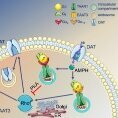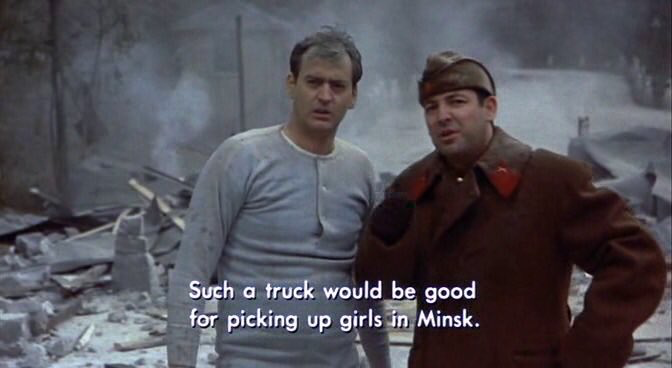-
Posts
835 -
Joined
-
Last visited
Content Type
Profiles
Forums
Store
Downloads
Recruiting - 2020
2019-2020 Football Season
Football
Entertainment
Sports
News and Business
Cloak Room
Transfer Portal
Recruiting
Events
Everything posted by PsychMike
-
Minimar?
-
Wait a minute, so if I hop in a DeLorean and set it for January 1, 1986 and head to the NYE "Enchantment Under the Sea" dance and cockblock Hart from meeting Rice Peeloff then I can watch my photo of Monica's blue dress as the stain disappears as do all the MAGA insurrectionists from my Jan 6 photos? Cool, challenge accepted!
-

NYC vs the Trump Crime Family Watch Thread
PsychMike replied to PenelopeWitherspoon's topic in Cloak Room
-
-
So you're saying she was reading this website and took FCB quite literally?
-

NYC vs the Trump Crime Family Watch Thread
PsychMike replied to PenelopeWitherspoon's topic in Cloak Room
-
Also, it overlooks the strategy of reducing the electorate by legislative voter suppression, growing that 35% without actually bringing any new souls into the tent.
-
Well, which is it, young feller? You want I should call you a 1/6er, which is 16.7%? Mean to say, if'n I call you a Three Percenter, I can't rightly drop the idea of you being three and and a third-er.
-
True story, my 13 year old son was in the Pfizer study. My wife and I asked him if he was interested in being in the study last December but we didn't put any pressure on him. He decided to participate because he wanted to help the community. Proud parenting moment. Of course, with randomization and blinding, we don't know if he received the active vaccine or sham placebo injection. He did have a modest reaction to it, as he felt sick and ran a low grade fever. He believed he got the real thing. But I know that there is such thing as a "nocebo effect," so I wasn't completely convinced. Fast forward to last Thursday, he can't go to school because his entire class is quarantined due to a "staff member" who was symptomatic with +Covid test. They weren't allowed can't come back for 10 days. It caused my son to miss 2 events where he was slated to receive awards and also miss his flag football game last weekend. He got tested today and the result is negative, so he can play this weekend. If we knew for sure he received the active vaccine he would've been fine to play. Now, the announcement of EUA expansion of the Pfizer vaccine to his age group, thanks in part to my son wanting to help the community. As proud as I am, I'm still pissed off at the staff member who could've avoided this BS if he/she cared about the community as much as my son does. Am I wrong to feel this way? PS We expect that they will unblind the study very soon. According to the study nurse, if he got placebo, he will be among the very first in line to get the real thing.
-
Bingo! This can and does happen in shithole countries even when making small molecule compounds, which is one of the primary reasons the FDA has opposed drug reimportation as a means to reduce drug pricing in the US.
-
Yeah perhaps. We used to sprint down the hill at Clark Field by Waller Creek. I think it was Spanky Stephens's strategy to force your feet to move more quickly so as to develop better speed. I have no idea whether there's scientific proof of this, but it seemed rational.
-

the trump election lawsuit thread of dominance
PsychMike replied to henrygandorf's topic in Cloak Room
Speaking of Arizona Recount, this is just great -
LOL, this is exactly the same thing I was just thinking. I must admit that this was the first time I ever noticed the bread dough or whatever that is, so maybe I'm slipping.
-
Solid open field tackle by #84...on the offense.
-
This seems like it doesn't suck.
-
"Abbott: “I don’t know what herd immunity is, but … it looks like it could be very close to herd immunity.” "Your Honor, move to strike that comment due to the fact that it's utter bullshit!" "Sustained. The court reporter will strike that entire statement from the record except, 'I don't know what herd immunity is.'"
-
dp
-
Galveston County Health District 18h · VACCINE APPOINTMENTS OPEN NOW! Galveston County Health District has VACCINE APPOINTMENT openings available for Wednesday, March 24. Appointments are open ONLY to: • Phase 1A (health care workers) • Phase 1B (those ages 65 and older or 18 and older with at least one chronic medical condition that puts them at increased risk for severe illness from the virus) • Phase 1C (those ages 50 and older) • Educator and child care personnel Please visit https://us1.quickscreen.health/galveston-county... to schedule your appointment. 1. Register and complete wellness checklist. 2. Choose your appointment date, location and time. 3. Be sure to click the BLUE CONFIRM button to finalize your appointment. 4. Print out or take a screenshot of your QR code to present at the time of your appointment. All appointments are for the Moderna vaccine. If you click the link above and no appointment times appear, that means all appointments have been booked.
-
I was going to bring up important limitations to consider when making such a consequential public health policy. But then I found this letter from John FR Robertson (who I've admired from my days working in hormonal therapies of breast cancer) and his colleagues in Lancet. CORRESPONDENCE| VOLUME 397, ISSUE 10277, P879-880, MARCH 06, 2021 Delayed second dose of the BNT162b2 vaccine: innovation or misguided conjecture? John F R Robertson Herb F Sewell Marcia Stewart Published:February 19, 2021 DOI:https://doi.org/10.1016/S0140-6736(21)00455-4 We strongly support vaccination against COVID-19 with the Pfizer-BioNTech COVID-19 mRNA vaccine BNT162b2 when adhering to the 3-week dosing schedule that was found highly effective in the phase 3 randomised clinical trial—regarded as the gold standard. However we do not support the second dose being delayed to 12 weeks, as implemented by UK Chief Medical Officers. The latter followed recommendations by the Joint Committee on Vaccination and Immunisation (JCVI), based on unplanned, retrospective analysis and unwarranted assumptions. The UK is currently the only country to have adopted a maximal 12 weeks delay. How science-led is the UK strategy? Is it innovative and world-leading, or scientifically fallacious, resulting in an unproven dosing schedule introduced without fully informed patient consent? What are the potential risks, for individuals and the population? The idea of protecting more of the population by delaying the second dose is predicated on a joint statement by the JCVI and Public Health England (PHE) that a first dose provides 89–90% efficacy (protection). This is contrary to the clinical data or efficacy generated from real-life clinical observational data from Israel. How did the JCVI arrive at their estimate of 89%? The JCVI performed an unplanned, retrospective analysis of the randomised clinical trial data. They compared COVID-19 cases in the vaccine group versus the control group from a 6-day window (15–21 days), selected retrospectively after examining the data. The resulting 89% efficacy (95% CI 52–97) was based only on roughly 20 events. Retrospective analyses in therapeutic trials can be hypothesis-generating but should not be used to treat individuals. The JCVI then made a major assumption that the 89% effectiveness persists from day 21 to day 85 in the absence of the second dose, for which no empirical evidence was adduced. In a further major, incorrect assumption, the JCVI stated “There is currently no strong evidence to expect that the immune response from the Pfizer-BioNTech and AstraZeneca vaccines differ substantially from each other”. No scientific data on mRNA vaccines exists to support this assumption. The available quality peer-reviewed, published immunology data would refute the assumptions documented by the JCVI and PHE. mRNA vaccines had never been used therapeutically in humans. The JCVI assumption that mRNA vaccines (BNT162b2 and Moderna's mRNA-1273 SARS-CoV-2 vaccine) would behave similarly to the AZD1222 viral vector DNA vaccine developed by the University of Oxford and AstraZeneca is not supported by published evidence. Phase 1/2 trial data of AZD1222 show a substantial specific anti-virus spike protein T-cell responses at day 7, which peaks at day 14.8This response is not seen with BNT162b2. Furthermore, there are marked quantitative differences in the production and duration of neutralising antibodies (NAbs). The mRNA vaccines show marked falls in NAb titres (compared with the DNA vaccine) in the period before the scheduled second dose (day 22 and day 29 for BNT162b211, and mRNA-1273, respectively), something we have specifically highlighted as occurring in all age groups. Inevitably, NAb titres will continue to fall during days 21–85, leading to very reduced immunity and increased risk to individuals of infection, especially in frail older people. An efficacy of 52·4% was reported out to day 22 for BNT162b2,13 and efficacy of 50–60% has been reported in observational cohort studies from Israel covering the same period. UK's delayed second dose strategy for BNT162b2 is, in our view, a misguided conjecture. It will yield some protection for the individual after a first dose: how much, and for how long, is unknown and without patient consent. The population risk is that the UK's delayed second dose could strongly favour the emergence of consequential SARS-CoV-2 variants resulting from sub-optimal or partial immunity. The Government's Scientific Advisory Group for Emergencies has also documented concern about emergence of variants as a result of the delayed second dose. Sub-optimal vaccination will create selective pressure facilitating the emergence of vaccine-resistant variants, which could result in a persisting pandemic. New vaccines, covering such variants, can be made but will require time for testing, mass production, and distribution. We have no concerns regarding the second dose of AZD1222 at 12 weeks, as this is supported by evidence. However, if escape variants arise due to sub-optimal dosing with BNT162b2, they will likely be resistant to other vaccines that target the same viral spike protein. In conclusion, we would strongly recommend that the UK Government reverts to the two doses in a 3-week schedule (94% efficacy) for BNT162b2; or, as recently supported by WHO and the US Centers for Disease Control and Prevention, adopt no more than a 6-week delay to the second dose “in exceptional circumstances”. BTW, I am getting my 2nd dose of Pfizer vaccine this Saturday and will continue to wear masks except my family or small groups of people who've been vaccinated. I hope that will change by this summer, but I'm just not as confident in the public overall as I am in the scientific community.
-
You can't spell Greg Abbott without G-A-B!
-
Ran across this in the Twittersphere: So I see this bit about his debts being paid off getting passed around by many folks on the left, but I was wondering if it's based on credible things that are publicly available. In other words, both sides of the spectrum enjoy passing off baseless tropes as truths because that's what politicos do. This one intrigues me more than most. Any thoughts?
Football ... Basketball ... Baseball ... Other Sports ... Futbol ... 🤫995🤫 ... Gambling ... Movies & TV ... Music ... Hobbies ... Lulz ... Food & Travel ... Daily Texan ... Business and Markets ... Cloak Room ... Help ... For Sale ... Board Discussion ... Subscribe!... Donate!... Advertise... COOKIE MONSTER!






